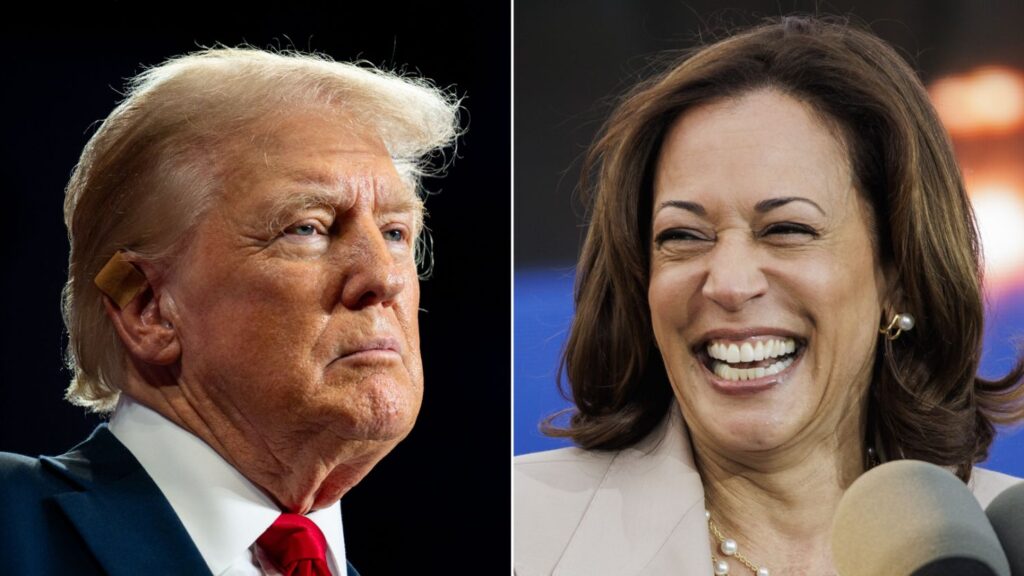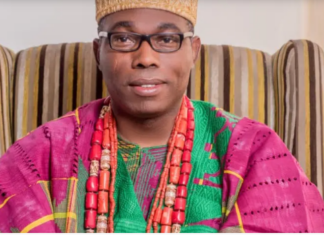The imminent rejection of Mr. Trump at the polls would be a loud rejection not only of his decadent brand of conservatism but also of his embarrassing incompetence and divisiveness. It is the fitting punishment for a Commander-in-Chief who could not protect himself, his family and the White House from Covid 19, or indeed protect America from its own better forgotten divisions and hidden ugliness.

By Chidi Amuta
In a matter of days, America’s democracy might self-correct and present a rough and bulky casualty. Mr. Donald Trump’s presidency is unlikely to be revalidated for a second term. As the various polls indicate once again, the American electorate seem poised to deal the disruptive Mr. Trump a merited ‘F’ grade. Forget about dead heat. The only heat in America’s political kitchen can only smoke out Mr. Trump and bid him final good night.
Trump’s imminent calamity is unlike 2016 when he defied the projections of most pollsters to clinch an Electoral College based victory over Hilary Clinton. Then, he was untested and something of a fresh vacation from the humdrum predictability and boring correctness of political Washington. For most of the rural populace and the unschooled artisans and calloused work hands in rusty industrial cities, he represented something of a hope for the renascence of classic America as it once was. Now is different. He is a tried and tested political toxin.
In many ways, Mr. Trump’s imminent humbling is more than a personal travail. Democracy itself is on trial. So are the many issues that define its credibility and global preference. Even Alexis De Tocqueville, the French writer and definitive authority on American democracy (Democracy in America) did not foresee the aberration that periodically, democracy will present a defective outcome. The people will go out to elect a leader who ends up as the opposite of their best intentions. Ironically, only democracy can correct its own mistakes at the next election. In many ways then, this US election is a classic test of democracy’s self -correcting capacity. The imminent election of Kamala Harris as the next US President is a fitting self-correction of a democratic error by democracy itself by the very people of the United States.
In the four years of his first tenure, Mr. Trump literally subverted the most powerful political office on earth. American history and the electoral process produced in Trump a president who was a highbred of leadership negativity. Trump was a cross between a Third World banana republic autocrat and a 19th century European fascist dictator. Thank God his fascist credentials have once again resurfaced in this campaign. While Trump held sway, the world held its breadth out of the fear that a highly unstable deviant genius in the White House could press the wrong button on the nuclear code with dire consequences for mankind. Every moment of the Trump presidency was minimally nightmarish and sometimes apocalyptic.
In his ill-digested bid to ‘make America great again’, Mr. Trump spent a whole four years regaling his countrymen and women and indeed the whole world with glimpses of his troubled mind and arguably demented vision. It was a tragedy foretold and a disaster perennially in the making.
For four years under the first Trump presidency, the world was treated to a quaint mixture of adolescent bluster and crude reality television. Where his support base and the rest of America expected purposeful conservative leadership, Mr. Trump offered an overdose of unthinking posturing and showmanship. In a country where fact and statistics constitute the bedrock of governance and public policy, Mr. Trump offered an unrelenting cascade of lies, half-truths and false figures to back up claims fueled more by a bloated ego than realities on the ground.
To Trump’s curious credit is the emergence of the novel concepts of ‘alternate truth’ and ‘fake news’. Under Trump, fiction came to compete with fact as the currency of public affairs. The credibility of the media as an institution of free democratic society came under systematic and unrelenting assault. Not even the American political establishment was spared the scalding marks of the Trumpian blitzkrieg. Even as he heads to lose this election, Trump will go down with the carcass of the Republican Party. The party of Ronald Reagan had shrunk to the party of the Trump family. Over 70% of speakers at the convention were either members of Mr. Trump’s family or his direct cronies and quislings.
READ ALSO: Moghalu scores for Nigeria
Nigerian politicians as enemies of democracy
Yet it is in terms of serial policy failures and administrative incoherence and mayhem that Mr. Trump is most likely to be remembered. In four years, he failed to fill more than 60% of jobs in the US government system. He hired and fired key White House appointees with the regularity of underpants. Renowned professionals, decorated generals and other persons of high repute who came to serve under his administration either left in frustrated anger or were unceremoniously humiliated out by the temperamental fits of an egotistic president. Most former Trump appointees have recently returned to haunt him all through this current campaign as someone to be barred from re-entry into the White House.
In his current campaign, Trump ended up as a more undisguised advocate of anarchy and hate than the first time around. His campaign promises ended up more as advertisement pay off lines than well thought out policy propositions. He would carry out the largest immigrant deportation in US history. To him, every illegal immigrant is a criminal. Immigrants were eating up pets and committing too many crimes in US border cities.
Mr. Trump’s disruptive value internationally was endless. For a nation whose history is rooted in a network of alliances and alignments across the globe, Trump ended up converting more US allies into potential adversaries in four years than America has known in 75 years after World War II. His personalization of foreign policy was bound to escalate global tension.
In his first term, Mr. Trump failed to realize that as US president, he was the inheritor of the historic burden of sustaining global order and security after the Second World War. By rolling back the bulwark of US security guarantees to its allies in Europe especially, Trump was literally permitting nuclear capable and wealthy nations like South Korea, Germany, Japan and perhaps Saudi Arabia to develop the appetite to acquire and use nuclear weapons. He has over these years made no secret of his admiration for all manner of autocrats and dictators to the discomfiture of time honoured American values. He openly admires and worships Vladimir Putin, Xi Jiping, Kim Jung Un, Viktor Orban and Mohammed Bin Salman.
It is true that US foreign policy has often had a destabilizing effect on parts of the world. It has felled bloody dictators only to allow the rise of dangerous armed factions in Iraq, Libya and parts of Syria. It has destabilized whole regions (the Middle East) and upset traditional balances of power in Latin America (Venezuela, Cuba) while problematizing territorial disputes like in Yemen and over the South China Sea. Mr. Trump’s temperamental diplomacy in his first term merely exacerbated these trends and made the world a more dangerous place.
On the domestic front, Trump may have had a few disjointed welcoming sound bites during his first term. He then spoke about bringing back American jobs from Mexico and China. He probably forgot that US manufacturers shipped their operations abroad in search of cheaper labour and lower production costs following the aggressive unionization of US labour in the Ronald Reagan days. He could be excused for appealing to the popular sentiments of America’s rural folk, farmers, rust belt technicians and non -college majority for political advantage. But Biden and Kamala Harris have since brought about a cooling off of the economy, bring down inflation to a historic 2% with millions of new jobs created in the last four years.
Trump’s habitual appeal to base instincts of racism and white supremacy weaponized American society against itself. He inherited a relatively united country and a healthy economy from Barack Obama but ended up creating a divided nation in which skin colour and systemic racism ignited a series of clashes and civil protests. In a belated attempt to appear like an advocate of law and order, Mr. Trump employed the strong arm tactics of autocratic dictators to quell the very riots and protests that his divisiveness had ignited.
In the last four years, America’s investigative and judicial machinery have revealed Mr. Trump’s moral deficits especially in his relationship with women. Nearly every high profile defendant in cases involving sexual offences and financial crookedness in America in the last four years either involved a Trump associate or made mention of Trump’s links with the accused. Mr. Trump’s all too frequent flirtations with all manner of criminal schemes ended up sending more than half a dozen of his associates to jail for offences ranging from perjury, forgery, money laundering to multiple campaign fund infractions. Mr. Trump’s closeness to these convicts was sometimes so close that only the weight of his previous high office kept him out of jail.
Mr. Trump’s singular qualification for seeking to return to the White House is to wage retributive crusades against his political enemies. He wants to fire the judges that presided over his myriad criminal and civil infractions. He wants to release all the criminals jailed for the January 6 riots at the US Capitol. In addition, he wants to complete his unfinished dinners with Kim Jong Un, Vladimir Putin, Xi Jinping and Victor Orban. For him, the job of US president is not bigger than that of a successful real estate merchant.
This, after all, is the nation of Sam Walton, founder of the Wal-Mart behemoth whose choice work location was behind the shop cash till and whose favourite transportation was a pickup truck. It is the nation of Bill Gates, one of the world’s richest single individuals who still drives himself to work and resisted for a long time that Microsoft should buy him a business jet to ferry him to and from meetings around the world. Not to talk of the great Warren Buffet who has lived in the same modest apartment almost all his life. Let us not talk of younger really wealthy Americans like Mark Zuckerberg with his over $60 billion net worth, who is so enamoured of his jeans and t-shirts that he hardly varies their colours!
In a nation that has long been greeted as the bastion of global capitalism, the minimum expectation is that anyone who hoists a business credential would at least pass the minimal tests of compliance and relative transparency. Not for Trump. He refused to disclose his tax returns and the brief details that the media sneaked out indicated that the man had not paid personal income tax for close to two decades while the maids and janitors in his gleaming high rise hotels sweated to pay personal income tax from their starvation wages.
Mr. Trump brought into the White House his personal creed of ‘transactional everything’. Not for him the nuanced refinement of political rhetoric. Not for him the candour and modesty of high office and immense power. Not for him the depth of knowledge on policy issues that should guide the business of governance let alone the higher requirements of diplomatic candour needed in managing the world’s most powerful office. NATO should pay its bills irrespective of the strategic import of the trans-Atlantic alliance. Mexico should pay for a border wall with the US to keep its citizens from migrating to America.
In spite of his own humongous fortunes, I doubt that Mr. Trump understands the higher need to protect capitalism from its own excesses. Instead, he proceeds to champion policies of protectionism, steep tariff barriers, isolationism and shutting out of immigrants and competitive trade arrangements with other countries. Some of the agreements that he cancelled in his first term had enabled American business to embrace global competitiveness. He would erect trade and tariff barriers against China, South Korea, Japan, Mexico and even Canada only to replace them with unworkable lopsided transient arrangements. For the United States, this meant a recourse to the early 19th century populism of Andrew Jackson who appealed to ‘the common man’ or the protectionist isolationism of the 1930s associated with men like Smoot-Hawley and Charles Lindbergh.
Of course Trumpism as a decadent and illiterate iteration of illiberal democracy and mob populist conservatism has had its followership not just in the United States but elsewhere by other names. Its primary appeal is the urge to constrict national spaces and resources to a native square. For Trump and his kind, the nation state becomes more or less a tribe of narrow-minded demagogues, a playground for opportunistic troublemakers and part time political rascals intent on hacking down long standing institutions of state. The rhetoric is a drive for ‘change’ from politics as usual to transactional politics, a shorthand for political anarchism. It is an autocratic populism that demolishes but hardly has a plan to reconstruct. Trumpism is not a theology of construction but rather one of destruction, division and antagonism both within the United States and among the nations of the world. It has no message for inclusion but rather for exclusion and barricades, border walls and mass deportation.
In the case of Trump and the United States, however, the pursuit of policies and rhetoric that promotes isolationism and shrinkage run counter to the bedrock of the founding vision of America, a robust civilization founded by immigrants with a global world historic mission and vision. Trump represents a lethal erosion of the creedal essence of the United States as a bastion of freedom and gathering point of global democracy. America was founded as a nation of immigrants, a place of great diversity and immense opportunity for those ready to work. Its strength and purpose derive from these fundamental values, which have catapulted it in these many years from an experimental creedal nation into a global civilization. It was designed as diverse, expansive and inclusive force for global good, not the bastion of smallness and divisive meanness that Trump’s narrow vision has reduced it to.
In America’s presidential system, the title of “Commander-in-Chief” has more than a ceremonial purely military meaning. It places on the shoulder of the president the burden of defending and protecting the nation from every threat: military, climatic, epidemiological and even doctrinal. Unfortunately for Trump, he has spent the last four years out of the White House retooling his divisiveness and nastiness. He has more insults for his opponents, more threats for immigrants and more frightful words for Americans who are opposed to his extremist perspectives. He now calls them “enemies within” against who he has threatened to deploy America’s armed forces.
There is therefore a larger sense in which the imminent US Presidential election is a referendum on the return of Trumpism. The imminent rejection of Mr. Trump at the polls would be a loud rejection not only of his decadent brand of conservatism but also of his embarrassing incompetence and divisiveness. It is the fitting punishment for a Commander-in-Chief who could not protect himself, his family and the White House from Covid 19, or indeed protect America from its own better forgotten divisions and hidden ugliness.
From the myriad negatives of the Trump Presidency the road map for the first term of the imminent Harris presidency may have been sketched. Even if Kamala Harris needs to tighten her stance on some issues, just the fact of her not being as nasty and toxic as Mr. Trump is victory enough for a new day in America.













